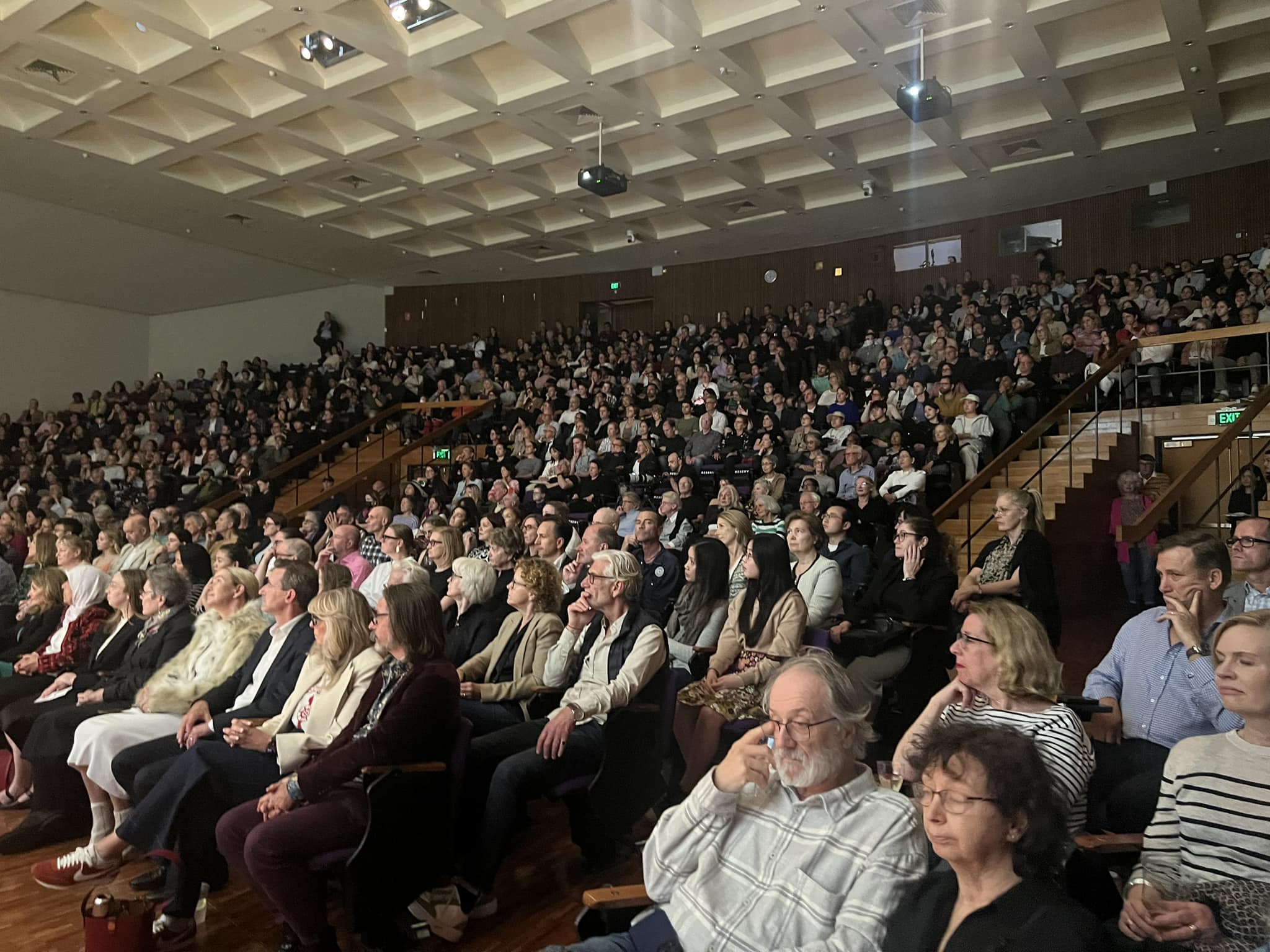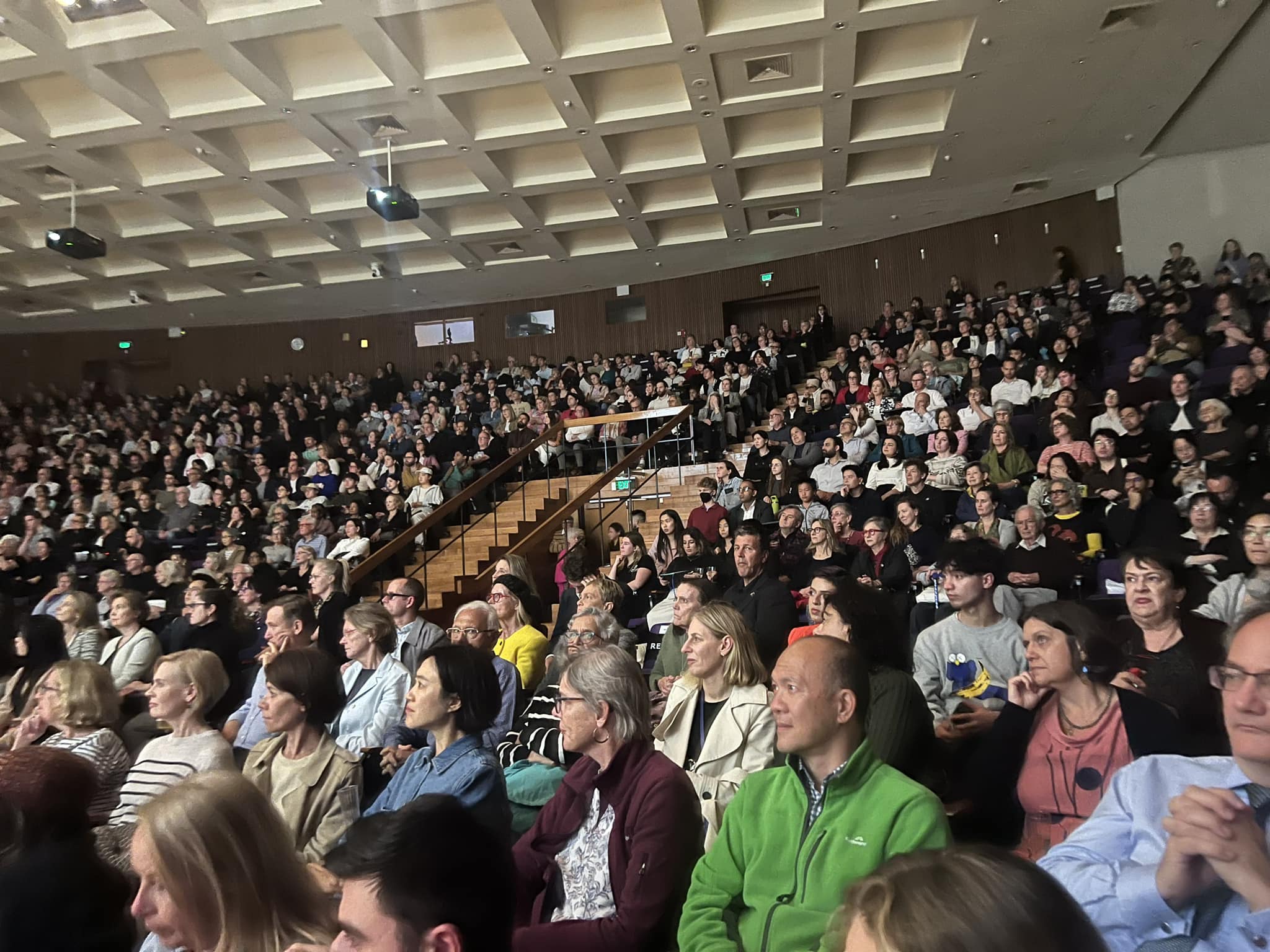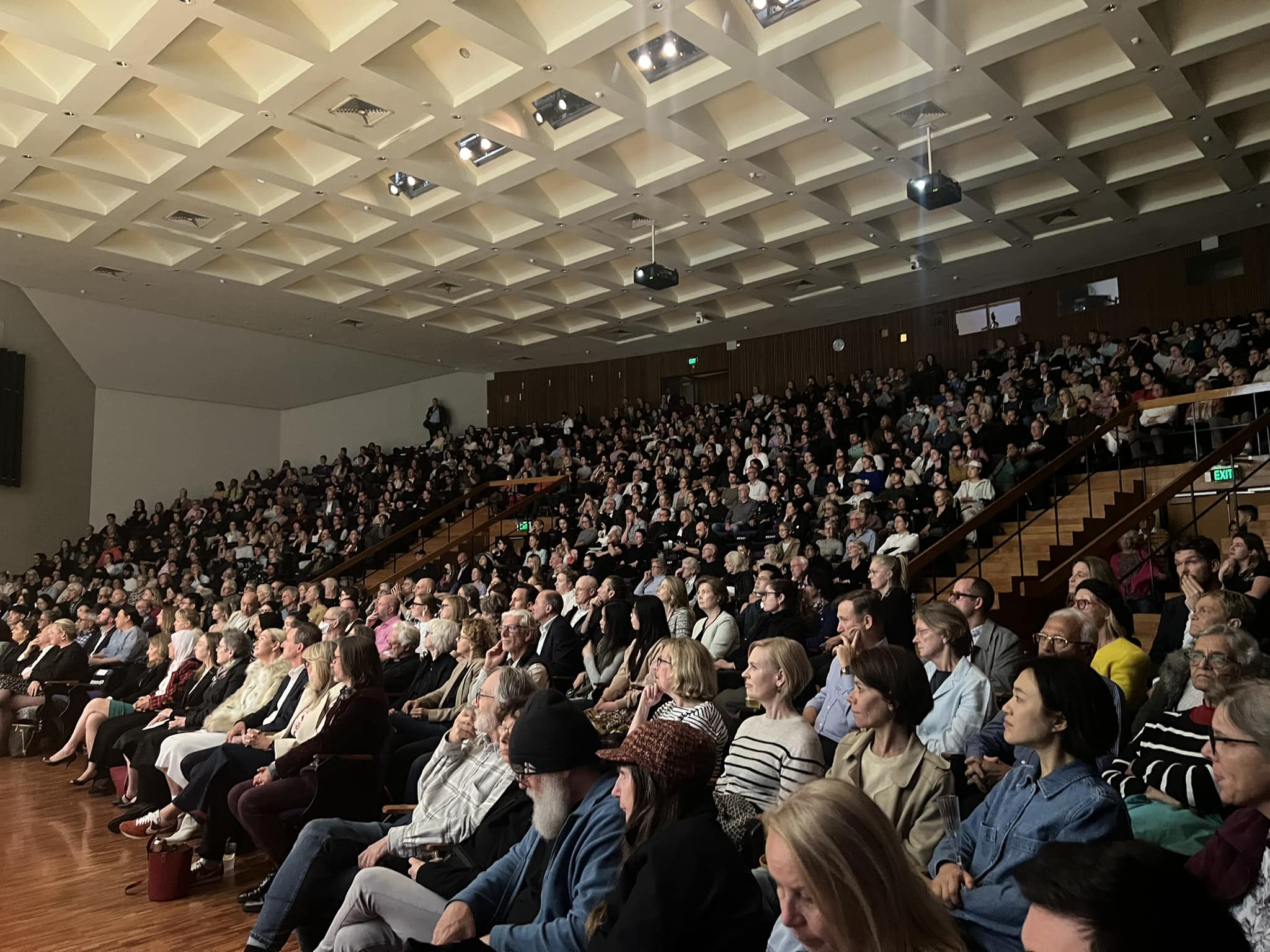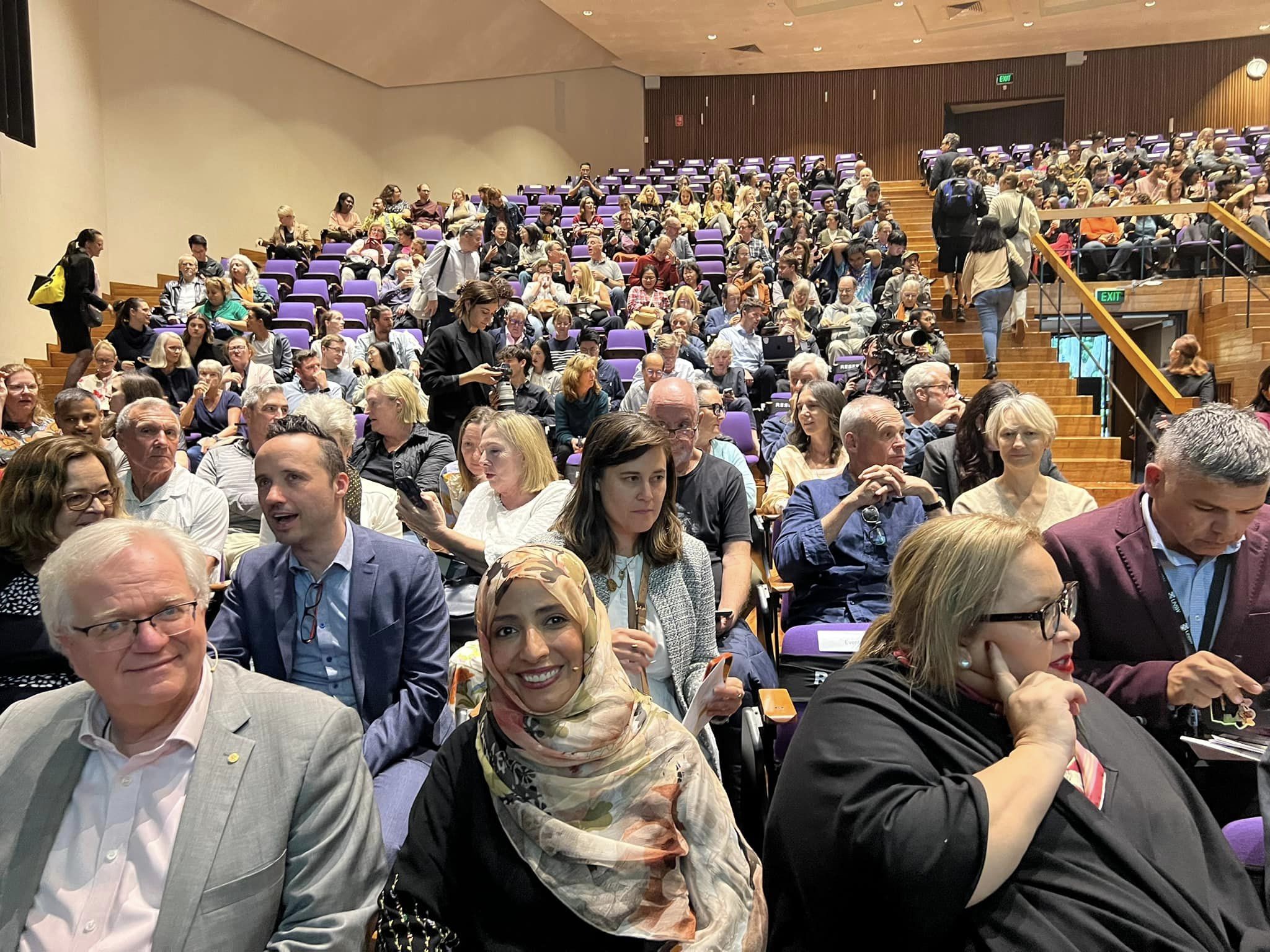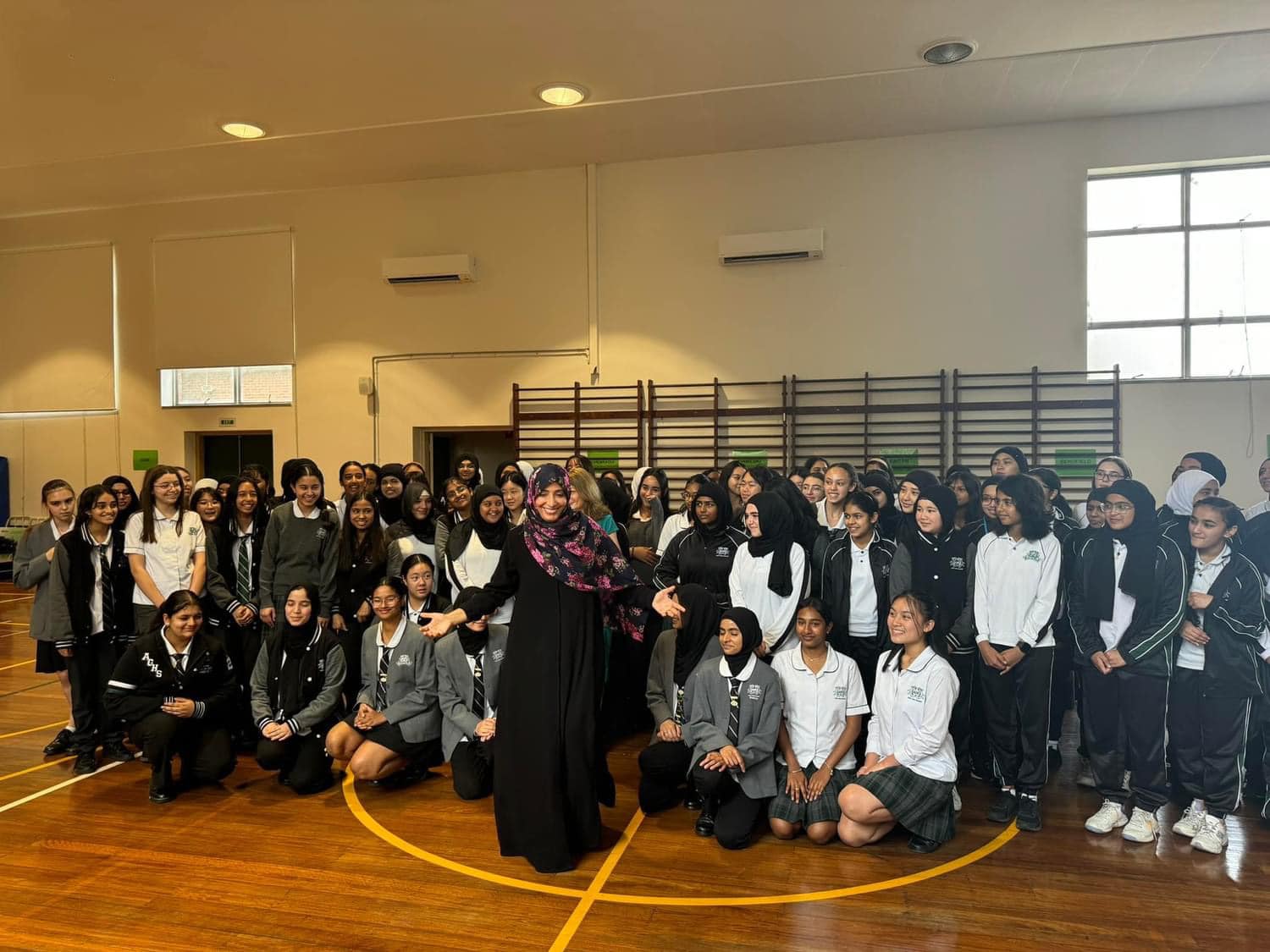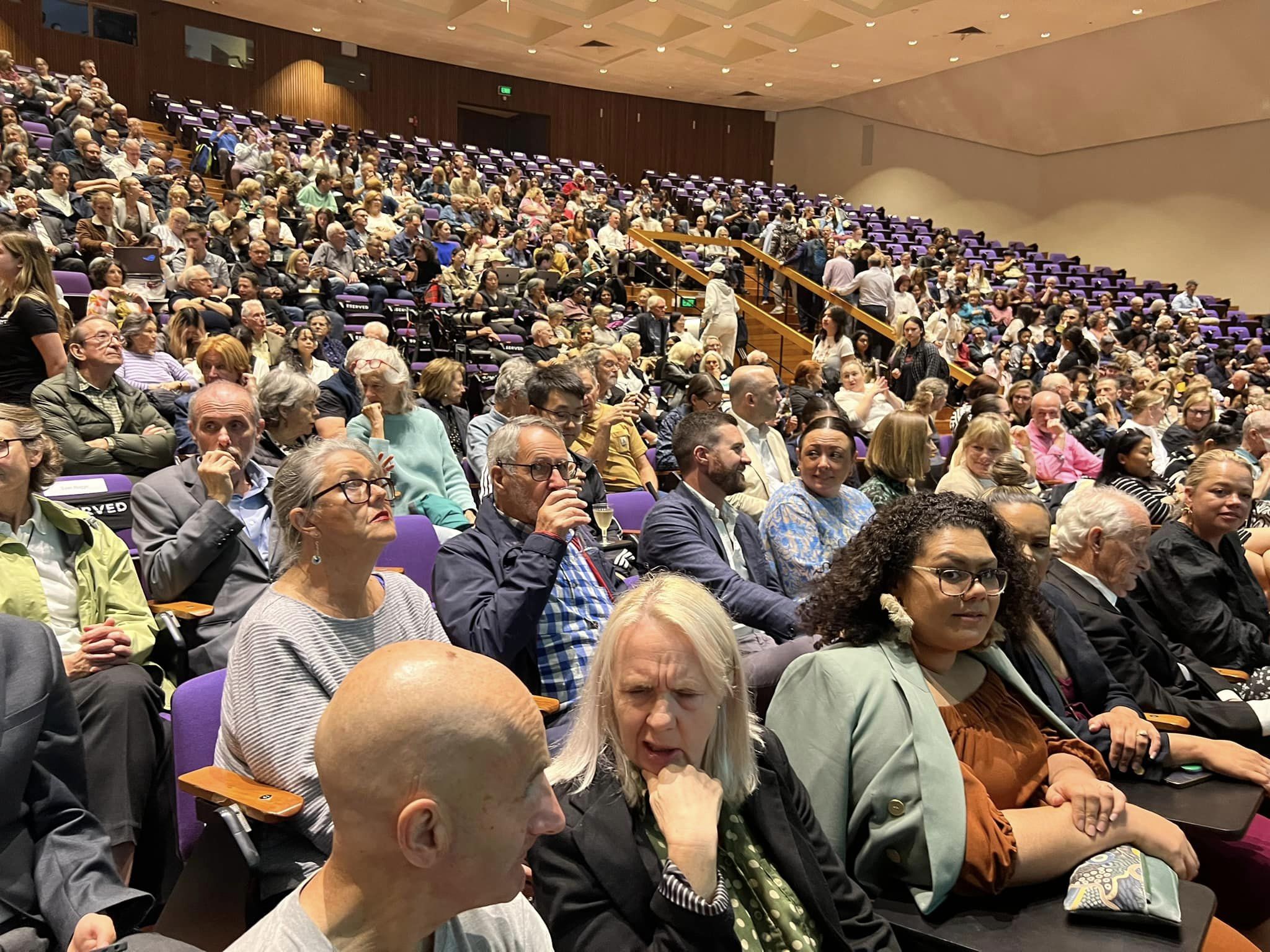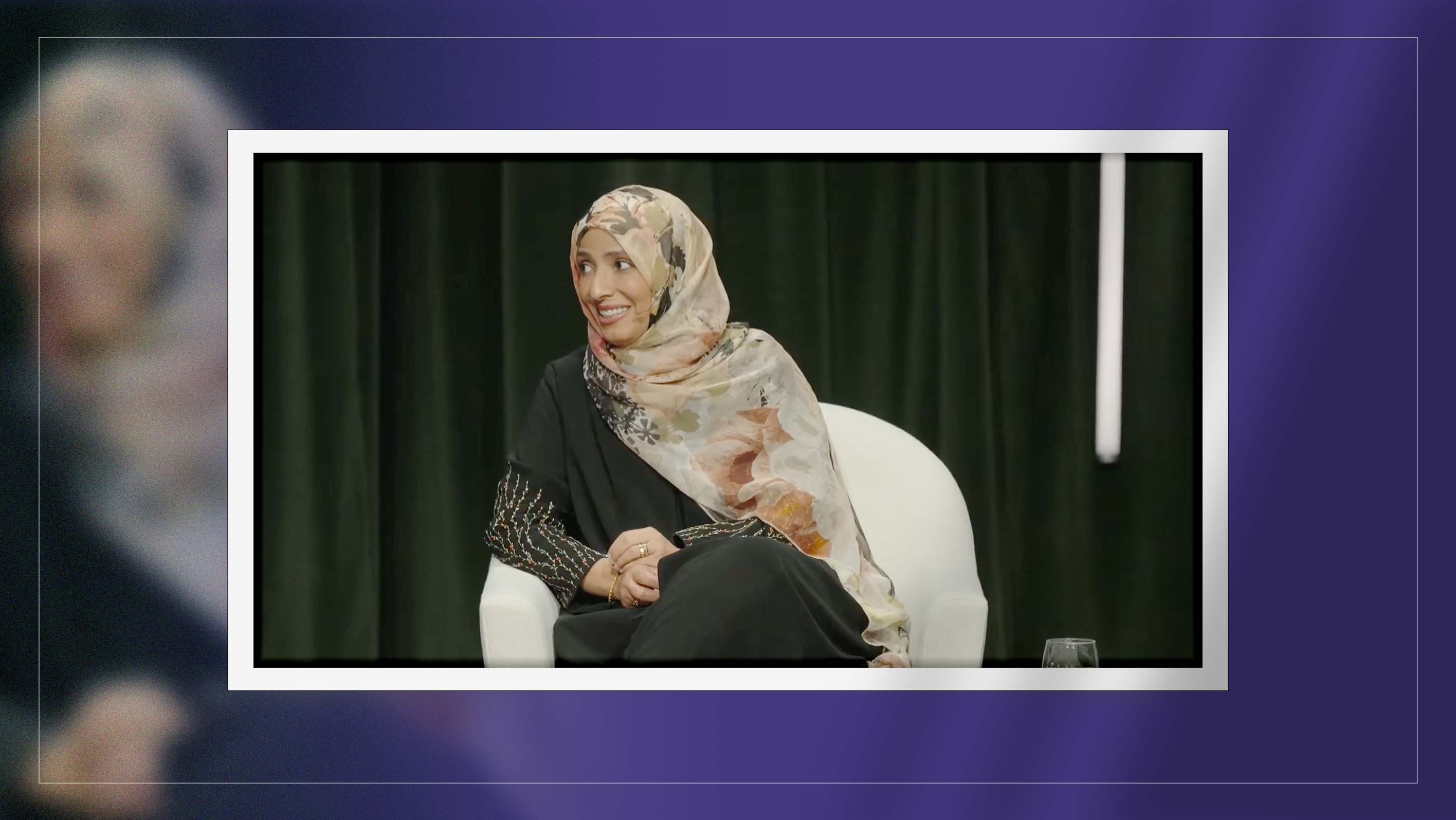Human rights advocate and Nobel Peace Prize laureate Tawakkol Karman delivered a strong message at the 2024 Nobel Dialogue in Sydney, Australia, emphasizing the crucial struggle for democracy and freedom in the Arab Spring countries.
She likened this struggle to the pain of childbirth, capturing the deep emotional and physical sacrifice involved in the pursuit of freedom.
Karman underscored the importance of unity among democratic nations, urging them to support those striving for democracy while warning against the dangers of collaborating with authoritarian regimes. "We suffer from three things: the betrayal of the West, Western colonialism, and authoritarian regimes," she stated, expressing the frustration felt by many around the world with the current geopolitical landscape.
Critically, Karman addressed the alarming decline of democracy not only in the Arab world but also in Western countries. She called for a return to fundamental democratic values and accountability, stressing the urgent need for reform in international institutions like the United Nations and the Security Council. "We need a fair distribution of wealth between rich and poor countries," she asserted, highlighting the interconnectedness of global issues.
Karman advocated for the abolition of the veto power held by permanent members of the Security Council, which she said is often used to further individual interests rather than the collective good. This, she asserted, is essential if we are to genuinely protect democracy on a global scale.
The activist pointed out that the decline of democracy poses a significant threat not only to the nations currently experiencing turmoil but also to the established democracies in the West. "Although we are fighting for democracy, it is in real decline in its strongholds," Karman warned, urging these countries to safeguard their democratic systems by reforming their policies and ceasing support for dictators.
She explained that dictators are not only detrimental to their own countries but also destabilize global peace and harm the national interests of democratic nations. Karman highlighted that these regimes often contribute to the influx of refugees and rising immigration, presenting a complex challenge for nations worldwide.
On the topic of technology and misinformation, Karman emphasized the importance of vigilance and skepticism. She encouraged individuals to view technology as a tool for positive change rather than oppression, advocating for its use in promoting human rights and fostering global solidarity.
Karman's remarks at the Nobel Dialogue served as a reminder of the ongoing struggle for democracy and the collective responsibility to protect it. Her insights resonate with the urgent need for reform, accountability, and a unified approach to combat authoritarianism, ensuring that the dreams of freedom and justice are realized for all.
Here is the complete text of the speech:
The moderator: What do you think needs to happen to stop the violence in the Middle East and foster peaceful dialogue? Where do you see hope for progress?
Tawakkol Karman: Hi everyone. Peace be on all of you. I am so happy to be here in Australia, this very beautiful country. I really fell in love with this country, especially with the old trees. I will start answering this question as a mother of four kids and as a woman. To say that we women and we mothers know how much it pains when you give birth to a child. What we are witnessing in the Arab Spring countries is the same pain of giving birth to a new country. This pain is a result of our dream, our bravery, our courage to demand and to call for freedom, justice, democracy, and rule of law in an absolute dictatorship system in our region.
In Arab countries, we are surrounded by the monarchies that led the counterrevolution, such as Saudi Arabia and the Emirates, and other authoritarian regimes like Iran. Those three countries that led the counterrevolution do not want democracy in our countries and do not want democracy in the region. They do not want democracy as a value because it would be a good example, and they are afraid of the revolution itself. When we dare to dream, and when we dare to sacrifice, and when we dare to create that peaceful revolution, the first step of the revolution, which is that every revolution has many, many steps. The first step is to step down the dictator. This is what we did. We forced seven dictators to leave authority in just less than 12 years. Imagine that. Imagine that.
We have a very important victory in this step. The second step is absolute for every revolution around the world throughout history. Every nation, every revolution first faces counterrevolution. The counterrevolution caused all this chaos. They will say that during the transitional period, we made great progress. An erratic constitution guarantees the values and principles we were talking about, guaranteeing freedoms to everyone in our countries and all the Arab Spring countries. It also guarantees economic stability.
Three, four, five years into the transitional period, there were mistakes, but they were just mistakes made by the people in power during the transitional period. Who committed the crimes? The failures that you say are not the result of the revolution; they are the result of the counterrevolution that rules now. The leaders of our countries are the result of military coups or militias or the remnants of dictators. They are the ones who wage war and create civil wars and support them, etc. This pain is absolute. Will we give up? Will we just cry? Will we say this is the ultimate result? No. The result is that we are still in the revolution, still sacrificing for freedom, democracy, and justice. Absolutely, we will win this battle. Absolutely. We did not give up, and we will not give up.
And you from Britain and Australia, do you really believe you can achieve revolutions or bring about democracy in just one year? You question us about our revolution and where our democracy is. True democracy takes hundreds of years to build. So why do you criticize us and say we have failed? We have not failed. We are here, and we will win this battle.
The moderator: In fact, the Nobel Prize in Economics this year went to three academics for looking at how the institutions created by Europeans around the world in the colonial era affect the possibility for success and failure today. It is long-lasting and goes on for centuries; the impact of these institutions that have been put in place.
Tawakkol Karman: I absolutely agree. The dictators in Africa and Latin America are the results of the colonial system. It is the result of them. When they left as a result of their despair of making Africa theirs; they left behind their colonial heritage with collapsed institutions. This is one of the reasons why you see Africa as a continent that suffers from poverty and tyranny, and Latin Americans suffer from tyranny. Here in Australia, for example, it is one of the stronger nations that has heritage, stable institutions. Why? Because those colonials stayed in Australia as their own country. They settled here as their own country. When they left, they left their own country; they didn’t leave like when they did with others.
Here we are suffering from Western betrayal, Western colonialism, and authoritarian regimes. People around the world give up on all this mess. Now you see a lot of people in Africa - and this is a big dilemma – making military coups inside Africa starting from the Congo and other countries, and those who are responsible for these coups are claiming: we are fighting for sovereignty. Why because dictators there are allies and agents of the colonial powers. So, we shouldn’t make people choose between military coups or dictatorship. No we should not so that. sovereignty means democracy. There is no collapse. The one thing that gives this message is the colonial power.
The moderator: Why do we need to do now that will make a difference? What do you think is your drive now to keep that pressure on to push for democracies in the Middle East? How can the international system, the United States, and others support that?
Tawakkol Karman: We have many things to do. First, we as people of the middle east and people around the world should not give up our dream, should not give up our hope, and should not give up our belief in victory. This is very important. We have to unite ourselves in front of this unification of authoritarian regimes. In the current situation, all the authoritarian regimes are united. There is a united camp of authoritarian regimes, while the democratic regimes are becoming divided and weaker than before.
It is for us, as a people, that we should not give up. Second, and this is what I always focus on, is the role of democratic countries. Those democratic countries are the ones who position themselves as the protectors of democracy and human rights. While they are the real attackers against democracy and human rights, when they make deals with dictatorships in our countries, they support corruption and at the same time they give up their values and principles of human rights, equality, and justice. That puts those countries in real danger.
The danger is that democracy is in decline, not just in our countries. While we are struggling for democracy, it is in real decline in Western and democratic countries, and they have to protect their democracy. They have to protect their democracy by reforming their policies, by returning to the values, and, as I said, by stopping support for dictators. You know, dictators are causing destabilization in global peace and against the national interest of democratic nations. They are the ones who cause the flow of refugees and emigration.
Those far-right extremists use this so-called refugee crisis, while the real crisis is corruption and tyranny. But they use hate against refugees as a tool to gain power and undermine democratic institutions. It is very important for democratic countries to stop their bad policies towards other countries and to speak of coexistence, acceptance, inclusion, and to stop fear from others, and they have to stop using refugees and immigrants as a slogan for their elections. Anyone of those politicians who uses emigration policy or hate speech should be held accountable. So, accountability is important in our country and your countries.
For example, in the US, a place where there is a very big decline in democracy, we see a lack of accountability for a person like Trump, who is accused of corruption and sexual harassment, etc., who attacked the Capitol and could not face any kind of accountability. Another example is George Bush, the one who invaded Iraq and spread the biggest disinformation in the world that Iraq had chemical weapons, is still without accountability, although he himself admitted that they were lying. These are important things.
We need those countries to reform their policies, and very importantly, we need reforms in the United Nations and the Security Council. This is crucial not only to protect democracy but also to protect global security, to protect the climate and also distribute wealth justly. We need a fair and just distribution of wealth between rich countries and poor countries.
What we need in the United Nations is to at least remove the veto power of the permanent members. They use it in their own interests. Now, in the genocide in Gaza, if there were a real just international system, this genocide would be stopped, Or before the genocide in Rohingya, etc. This is what we need if we want to protect democracy.
If you allow me to add something, it's really shocking to me that indigenous people here in Australia are still struggling for the right of recognition in the constitution. That is a shame, really, that until now you haven't had this right, and you still keep struggling for it. Don't give up on this. And this reminds me of how indigenous people truly suffer at the hands of governments in general, as well as from multinational corporations.
I visited indigenous people in Honduras and Guatemala, and I saw how, oh my God, they suffer from these multinational corporations that first steal their land, second create great pollution for them, and for the water, the air, and everything. So, we need accountability, really. We need it. I think the most important solution that we need in this world is accountability. Those who attack the climate, who attack our planet, ecosystem, and biodiversity should be held accountable. War criminals have to face accountability. So, in addition to recognition, let’s make it also, though I don’t want to say that, but we have to apologize to indigenous people in those countries.
The moderator: I will go to the audience for questions and answers in a second, but I’ll ask one question to both of you. Brian has already raised the issue of misinformation and disinformation and the digital revolution—a favorite topic. It’s a big question, making a mess of so much and tearing apart so much that is good in democratic societies. Where do we go?
Tawakkol Karman: Look, this is one of the challenges that faces humanity now. This technology, which should be served in a good way, is now being used in a wrong way. It's a very important issue; it's the blessing that gives all generations in this age, you know, benefit from. But with this disinformation, misinformation, and hate speech, also due to the big tech companies that seek to profit more than to uphold the expression of rights and promote peace and love between people. If they focused on how to use this platform for people to live with each other, they would create very important methods to fight disinformation, misinformation, and hate speech. But they don't. The things they do with their logarithms, only increase their profits and their goods. This point is number one.
Number two, which is very important with technology, is that now technology has become a tool of the oppressors. Now the technology is used to attack opinions and also to establish relationships with those big tech companies, creating spy programs against those people. This is one of the disadvantages of these platforms. But at the same time, we have to teach our people, young people, and ourselves how to be skeptical of this information, how to find meaningful resources, and how to search for truth, not accepting anything that comes to us as something truthful. We have to be skeptical.
And we have to work for that very much, and we have to use it. It must be our tool. Let it be our tool for spreading peace, fighting corruption, and advocating for human rights and climate change, for our issues—not only a tool of authoritarian regimes or the oppressors.
Let me jump in on regulations because this is very important … and very quickly. I absolutely have a big talk and own position on disinformation and what is happening now on social media platforms. But it's very important when we talk about disinformation and misinformation and regulations to be careful because now they use this regulation to limit expression rights.
Now there is a deterioration in this field. So governments, including Europe, are implementing some regulations and laws that will lead to attacking the expression right under the umbrella of disinformation and misinformation. And we see that in India, and I have a lot of example in this regard. So we have to be careful when we talk about regulations, as we don't want these regulations to be the tool of the government to practice censorship, very strong censorship on expression rights. Fighting disinformation and misinformation, and hate speech is something else than putting limits and laws on the expression rights.
Question: Hello, thank you Tawakkol Karman for all that you do and all of your advocacy. I can only hope that one day I can be as brave and as bold as you. I am an Afghan refugee and asylum seeker. I arrived in Australia by boat from Indonesia, where my family migrated to. I have lived here for over 12 years, almost. Yet I find myself without a voice in our political and democratic system. Despite studying, living, and working alongside everyday Australians, I do not have the right to vote because I am classified, quote unquote, as an illegal maritime arrival. I represent the voices that often go unheard. My question to you is, how can we create or improve our democratic system to include more voices and also rebuild trust in democracy?
Tawakkol Karman: How do you describe yourself that you don't have a voice while you're standing here with that big confidence, with that big voice, big greeting, thank you so much, and just continue, this is, continue rising your voice, be brave, and really, the democratic countries really need a great reform. I do not talk about authoritarian regimes because I am in a very direct battle with them, starting with Putin and extending to the smallest dictator in the world. I have that determination, and I promised myself and my people that I would stand against any dictator around the world until I or their people put an end to them. This is my first battle. My second battle is with democratic countries, and here your people have a very big responsibility. You need to safeguard this democracy. If this democracy fails, everything around the world will fail.
Democracy means freedom of expression, democracy means accountability, democracy means freedom of gathering, democracy means the division of institutions, democracy means the independence of the judiciary, and democracy means a lot of things. Democracy means justice, justice, and equality. And now there is this deterioration in the democratic systems because they give up; they give up their values and demands. So don't think that if you stay silent, you are benefiting yourself or your family. No, you are participating in destroying this very important thing that will save the world. So, it's very important for all of us, and everyone here, you have to take this responsibility. Don't make people disbelieve in democracy. Don't let people think that the problem is with democracy. No, the problem is with the lack of democracy. We should work together to protect democracy, and with this unified voice, we will be able to face all other deteriorations, especially the dictatorship systems.
To watch speech click (here)
